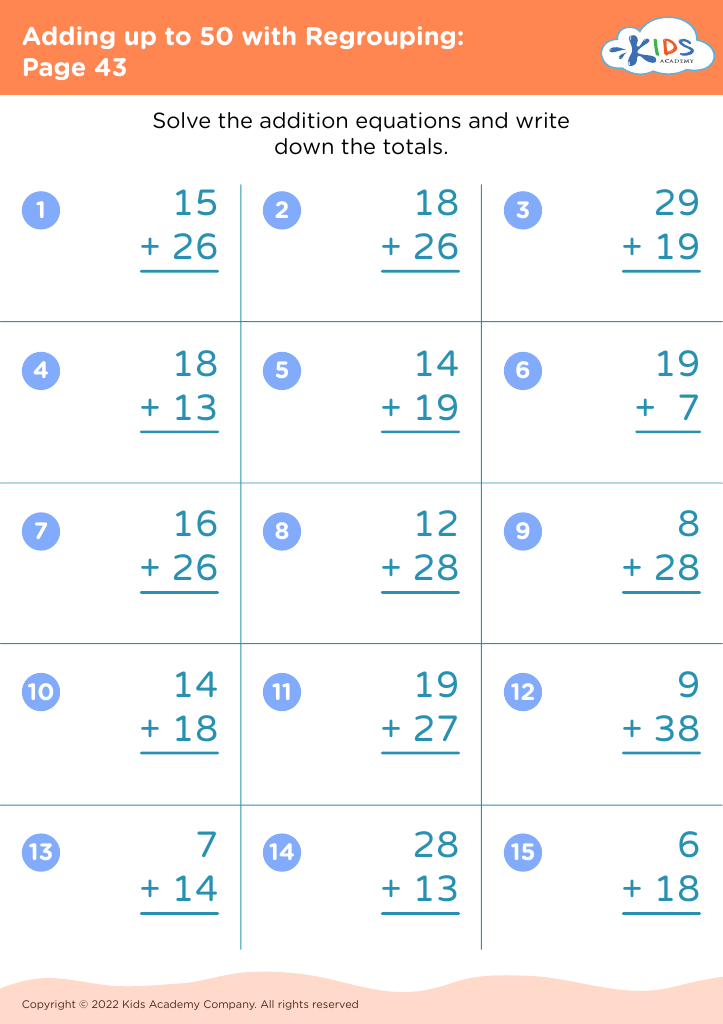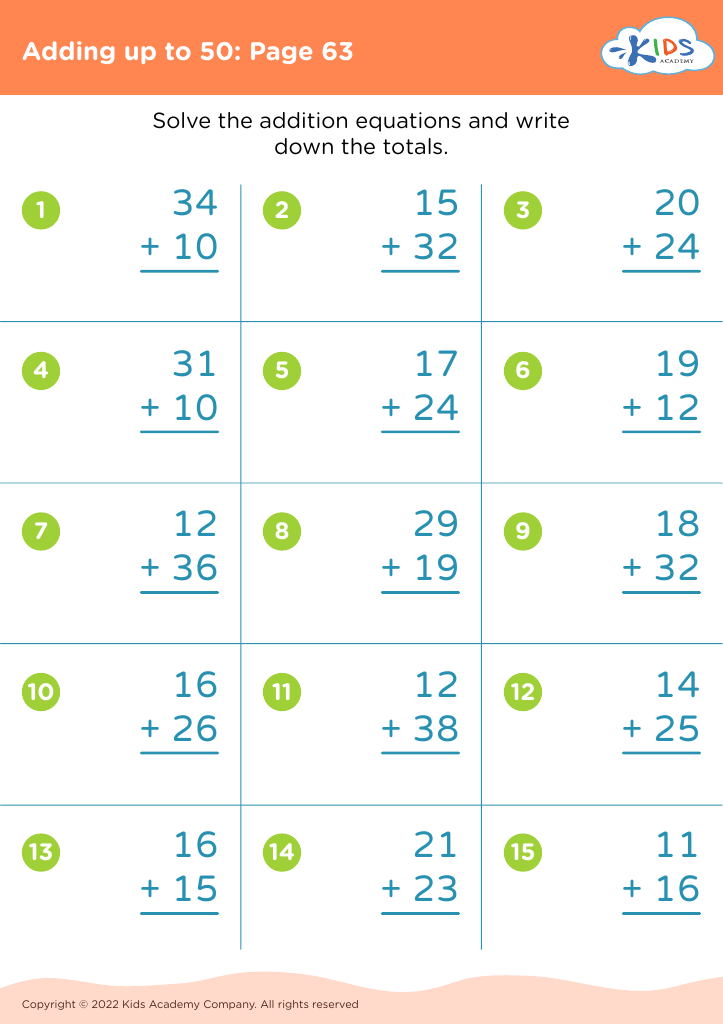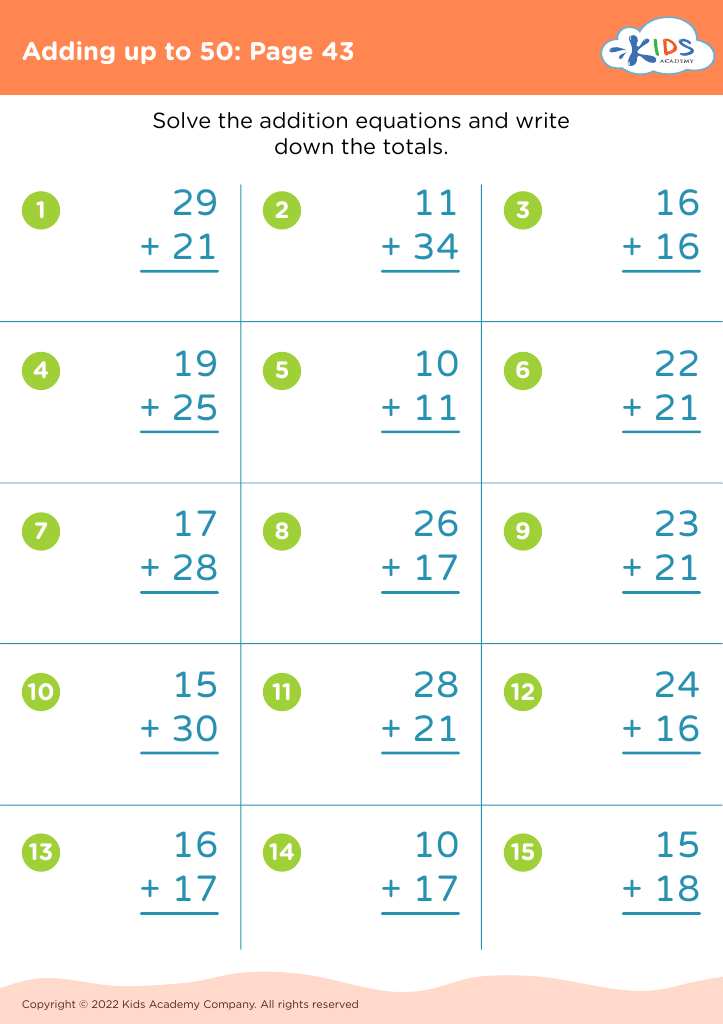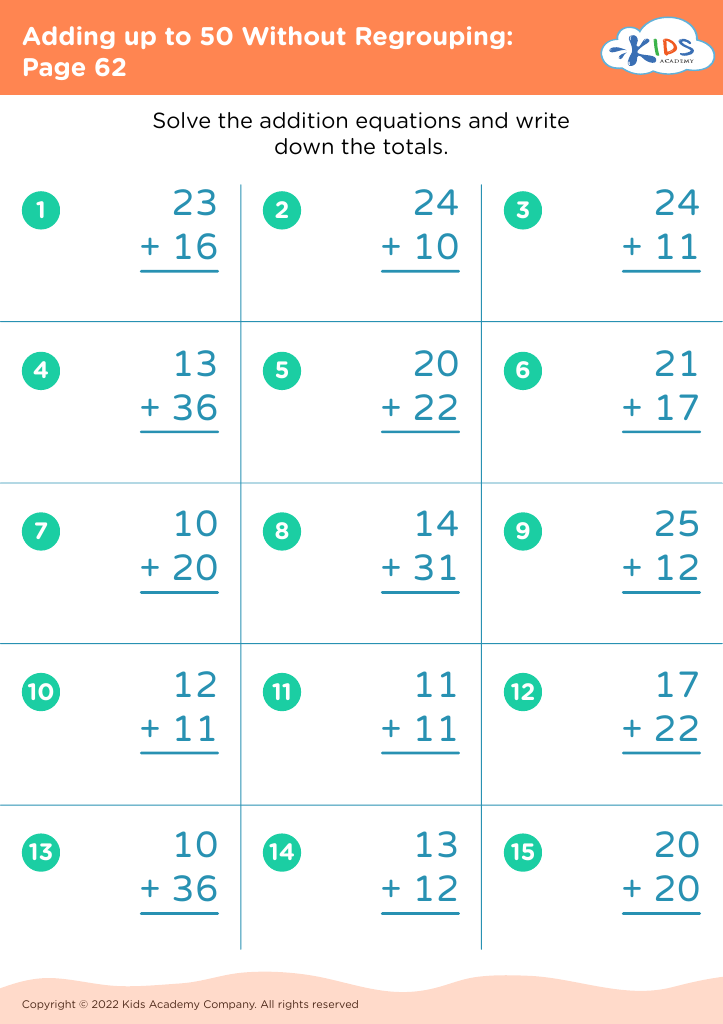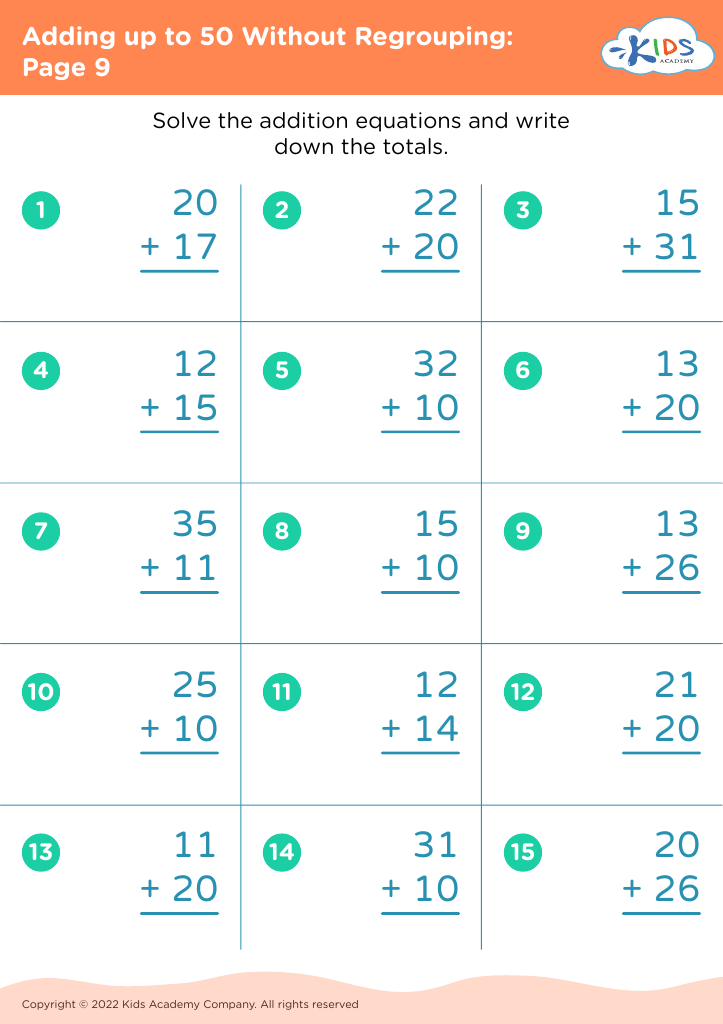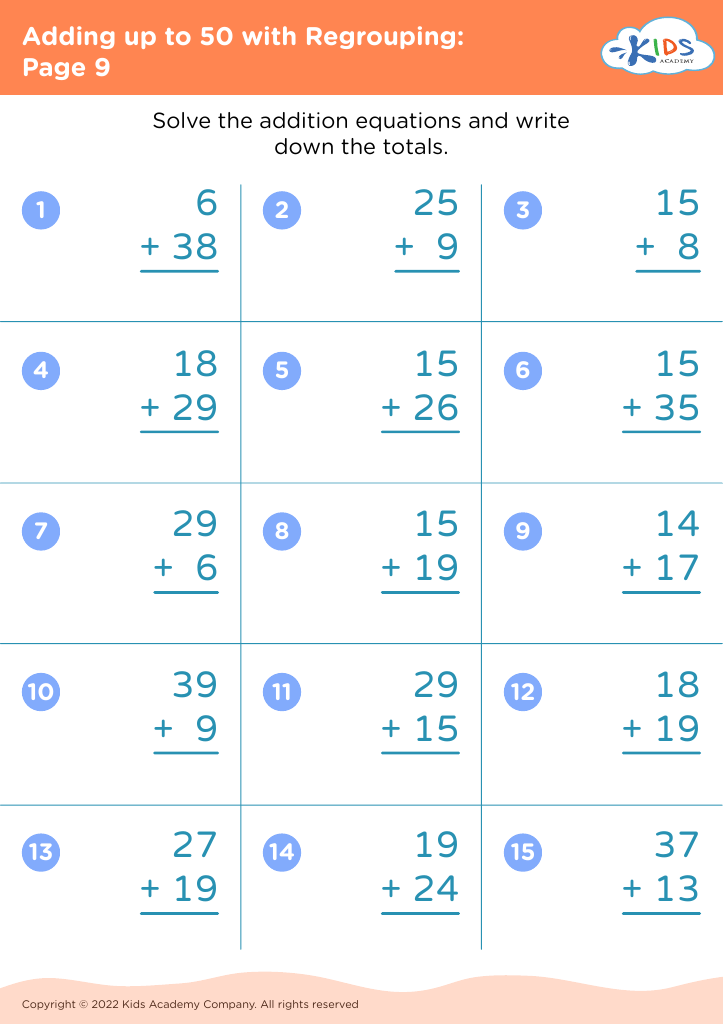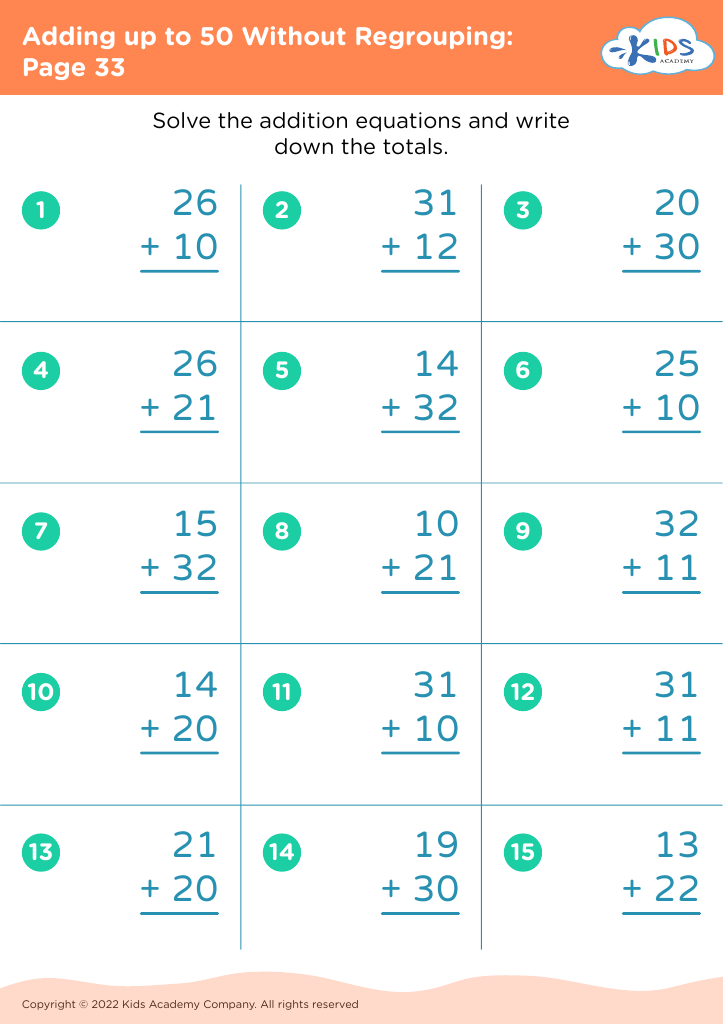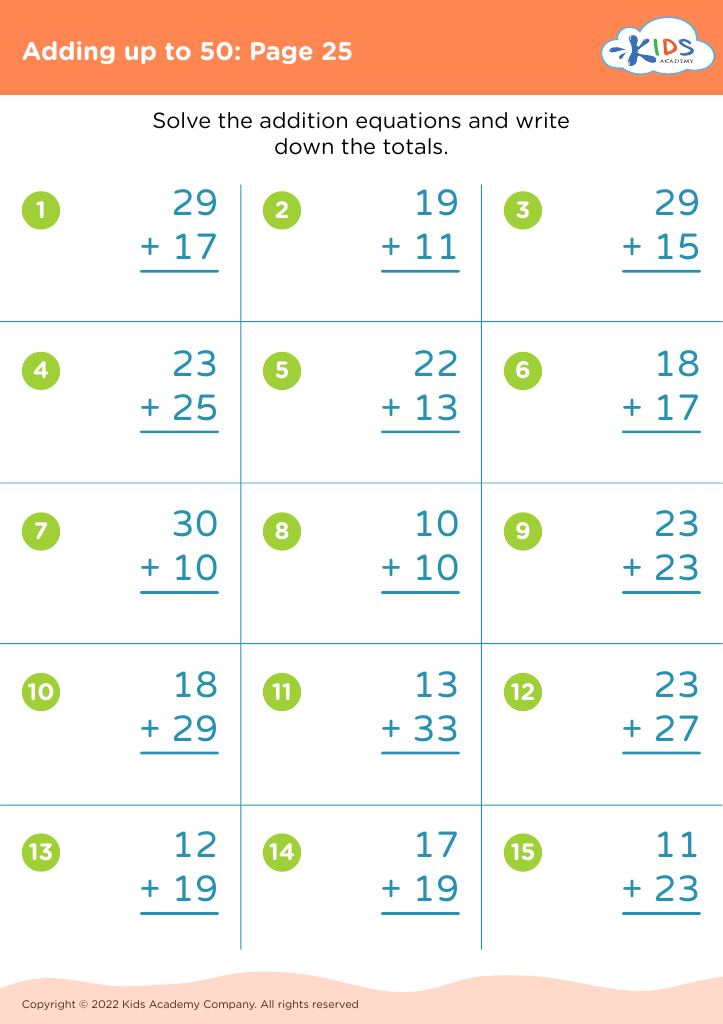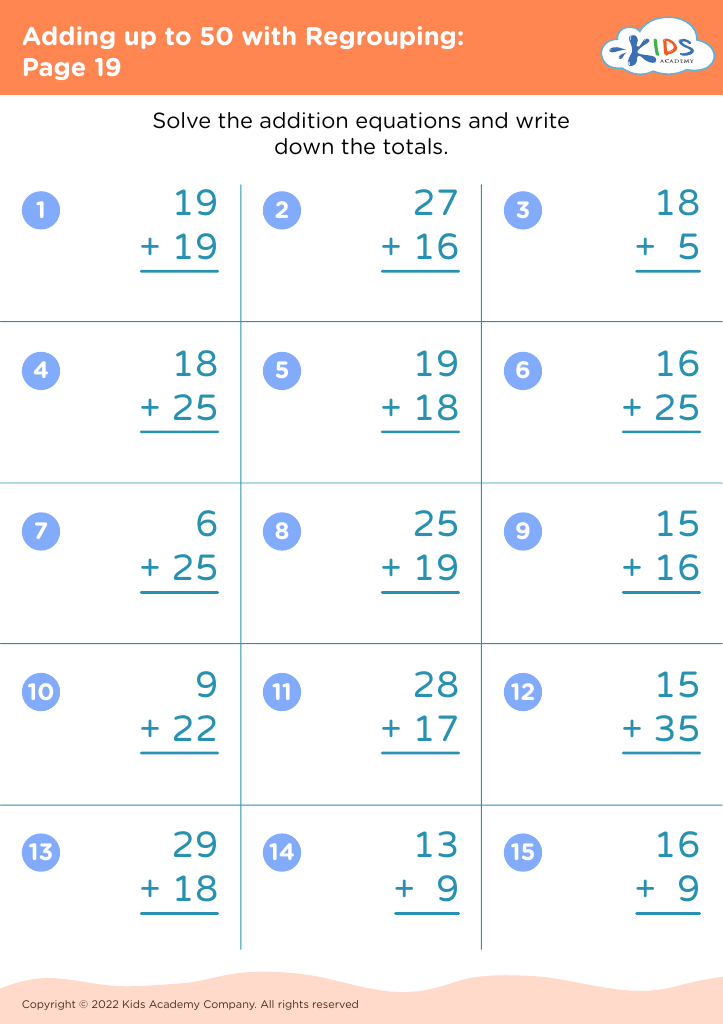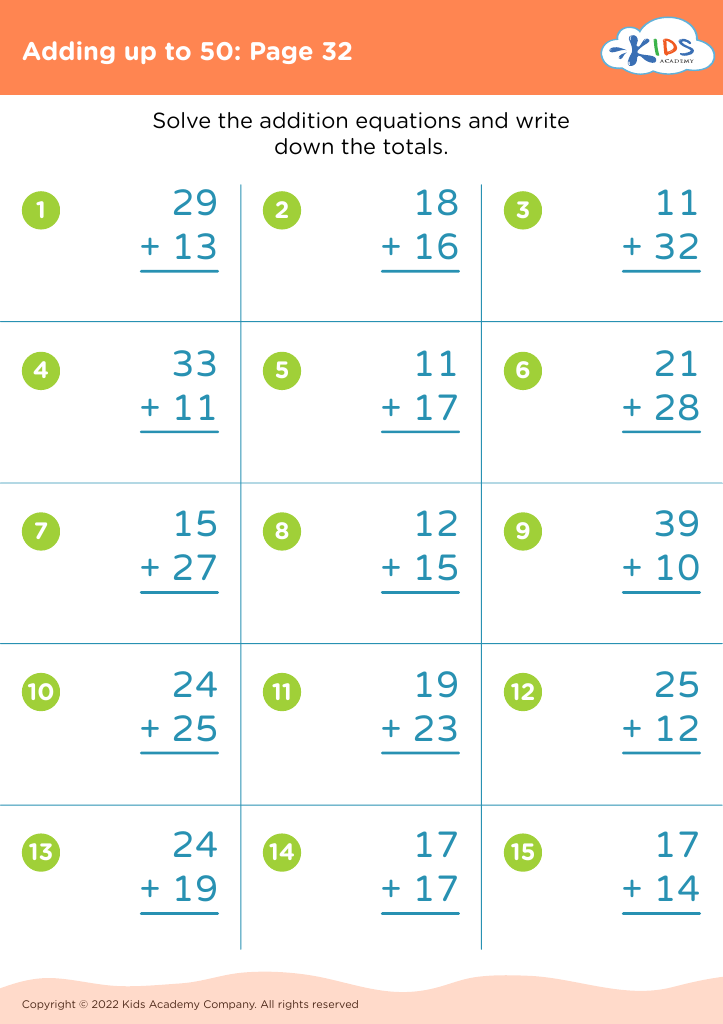Addition Practice Adding up to 50 Worksheets for Ages 7-9
16 filtered results
-
From - To
Enhance your child's math skills with our "Addition Practice Adding up to 50 Worksheets" designed specifically for ages 7-9. These engaging worksheets provide fun and interactive exercises that help students master addition concepts while building their confidence in math. Tailored to align with curriculum standards, each worksheet progressively challenges children with various problems, allowing them to develop critical thinking and problem-solving skills. It's a perfect resource for homeschooling, classroom use, or supplemental practice. With colorful designs and age-appropriate content, learning addition becomes enjoyable and effective. Start your child's journey toward math mastery today!
Parents and teachers should prioritize addition practice up to 50 for children ages 7-9, as this foundational skill is crucial for their overall numeracy development and future academic success. At this age, children begin to understand more complex mathematical concepts, and mastering basic addition lays the groundwork for skills like subtraction, multiplication, and division. Proficient addition enhances their problem-solving abilities and boosts confidence in math-related activities.
Moreover, regular practice helps reinforce a child’s understanding of number relationships, improves mental math skills, and prepares them for real-world applications, such as budgeting and time management. Furthermore, proficiency in addition can alleviate anxiety around math, creating a positive learning experience.
Engaging in addition activities, such as games or interactive problems, can also foster a love for math. By emphasizing addition practice, parents and teachers create an environment where children develop essential strategies and enjoy learning.
Ultimately, supporting children's addition skills opens doors to lifelong learning, ensuring they are well-prepared for advanced mathematical challenges and fostering a strong mathematical foundation that will benefit them in both their academic and everyday lives.


